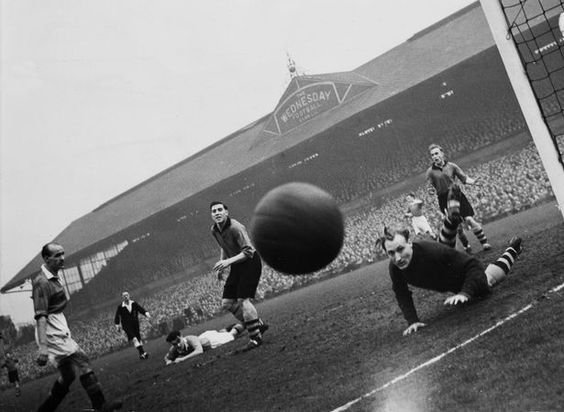
Introduction:
Football, a sport that transcends borders and cultures, has a history as rich and diverse as the game itself. From its humble beginnings to the global spectacle we witness today, the evolution of football mirrors the evolution of societies and civilizations. In this exploration of football history, we will delve into the key milestones, iconic moments, and transformative events that have shaped the beautiful game into the global phenomenon it is today.
The Genesis of Football:
The roots of football can be traced back to ancient civilizations, where various forms of the game were played across different cultures. The Chinese game of Cuju, dating back to the 2nd and 3rd centuries BC, involved players kicking a leather ball through an opening in a net. Similarly, the Greeks and Romans had their own versions of the game, emphasizing physical prowess and strategy.
However, it wasn’t until medieval Europe that football began to take on a more recognizable form. A chaotic and sometimes violent game, these early iterations lacked standardized rules, leading to frequent clashes between rival factions. It was during the 19th century that the need for a unified set of regulations became apparent.
The First International Matches:
With the establishment of standardized rules, the stage was set for international competition. The first recorded international football match took place in 1872 between England and Scotland. Played at Hamilton Crescent in Glasgow, the game ended in a 0-0 draw, marking the inception of a tradition that would captivate fans worldwide.
The Birth of FIFA:
As football continued to gain popularity across continents, the need for a global governing body became apparent. In 1904, the Fédération Internationale de Football Association (FIFA) was founded in Paris, with the mission of overseeing and promoting the sport on an international level. Over the decades, FIFA has played a pivotal role in organizing tournaments, establishing rules, and fostering global unity through the universal language of football.
The Golden Age of Brazilian Football:
Throughout the 20th century, football witnessed the rise of iconic teams and legendary players who left an indelible mark on the sport. In the 1950s and 1960s, Brazil emerged as a footballing powerhouse, captivating the world with their flair and attacking style. Led by the incomparable Pelé, Brazil claimed multiple World Cup titles, solidifying their reputation as the epitome of “samba football.”
The Miracle of 1966:
The 1966 FIFA World Cup in England remains etched in football history for various reasons. England hosted and won their first and only World Cup, with Geoff Hurst’s hat-trick in the final against West Germany becoming one of the most iconic moments in the sport. The tournament also introduced technological innovations, such as goal-line technology, showcasing football’s willingness to embrace advancements.
Global Expansion and the Rise of Club Football:
As the 20th century progressed, football continued to expand its global reach. European club competitions, such as the UEFA Champions League, became prestigious tournaments, showcasing the best teams from the continent. Legendary clubs like Real Madrid, Barcelona, Manchester United, and AC Milan etched their names in history, creating enduring rivalries and captivating fans around the world.
The Modern Era and Superstar Domination:


The turn of the 21st century ushered in an era of superstar dominance. Players like Lionel Messi and Cristiano Ronaldo took the sport to new heights, captivating audiences with their extraordinary skills and goal-scoring prowess. Their rivalry transcended team allegiances and became a defining narrative of modern football, fueling debates about who truly deserved the title of the world’s best player.
Technological Advancements and VAR:
In the pursuit of fairness and accuracy, football embraced technological advancements. Video Assistant Referee (VAR) technology was introduced to assist match officials in making crucial decisions. While VAR has sparked debates and controversies, its implementation represents a commitment to ensuring the integrity of the game.
Football and Social Impact:
Beyond the pitch, football has played a significant role in shaping societal narratives and promoting social change. From anti-racism campaigns to charitable initiatives, football has proven to be a powerful force for good. Players and clubs have used their influence to address social issues, contributing to a more inclusive and socially aware sporting community.
Conclusion:
The journey of football from ancient civilizations to the modern global spectacle is a testament to the sport’s enduring appeal. As we celebrate its rich history, we look forward to the future, where football will undoubtedly continue to evolve, captivate audiences, and serve as a unifying force for generations to come. Whether played on dusty streets or in state-of-the-art stadiums, football remains the beautiful game that transcends boundaries and brings people together in the spirit of competition and camaraderie.